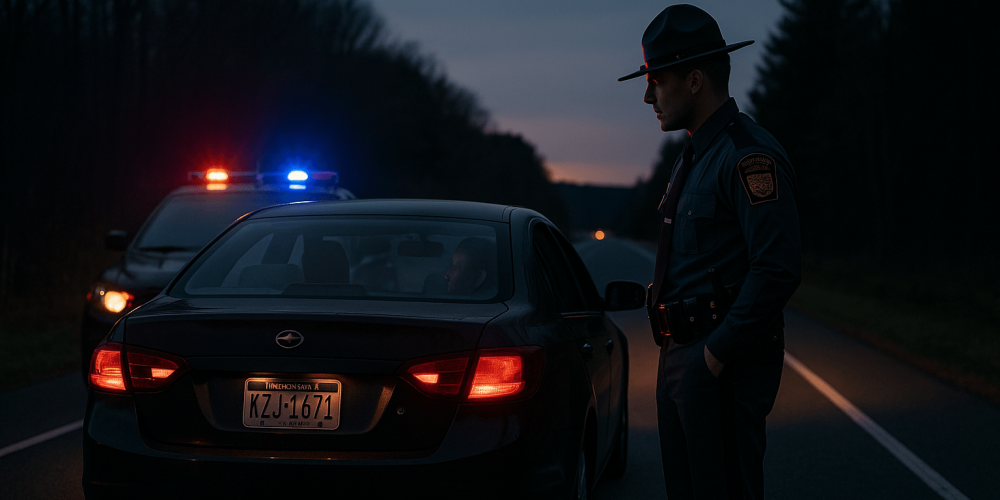DUI in Pennsylvania – Know the Rules Before You’re Charged
A DUI in Pennsylvania (Driving Under the Influence in Pennsylvania) is a serious legal issue with long-term consequences. Pennsylvania uses a tiered DUI system, meaning the penalties vary depending on your blood alcohol content (BAC), prior offenses, and other factors. If you’re facing a DUI charge—or want to understand the law before it happens—this guide covers the essentials.
What Constitutes a DUI in Pennsylvania?
A DUI in Pennsylvania occurs when a person operates a vehicle with a BAC of 0.08% or higher. However, Pennsylvania law recognizes three levels of DUI severity based on BAC and other impairments:
DUI Tiers in Pennsylvania:
- General Impairment: BAC of 0.08% to 0.099%
- High BAC: BAC of 0.10% to 0.159%
- Highest BAC: BAC of 0.16% and above or refusal to test
You can also be charged with a DUI in PA if you’re impaired by drugs, prescription medication, or a combination of substances—even if your BAC is below 0.08%. Under implied consent laws, refusing a chemical test results in automatic license suspension.
Penalties for a DUI in Pennsylvania
The penalties for a DUI in PA depend on your BAC level and how many prior DUI offenses you have. The state takes repeat offenses very seriously, and penalties increase significantly after the first conviction.
First Offense:
- General Impairment: No mandatory jail, $300 fine, probation, alcohol highway safety school
- High BAC: 48 hours to 6 months in jail, $500–$5,000 fine, 12-month license suspension
- Highest BAC: 72 hours to 6 months in jail, $1,000–$5,000 fine, 12-month suspension
Second Offense:
- Increased jail time and a mandatory ignition interlock device
- Longer license suspension (12–18 months)
- Higher fines and longer mandatory treatment
Third or More Offenses:
- Felony classification for the Highest BAC level
- 1–5 years in prison
- Permanent license revocation is possible
- Mandatory DUI/DWI classes and SR-22 insurance
Each DUI level has unique penalties, but even the least severe charge can impact your record and finances for years.
Long-Term Effects of a DUI in Pennsylvania
Getting a DUI in PA doesn’t just affect your driving privileges—it can impact your life in many other ways.
Consequences Beyond the Courtroom:
- Criminal Record: A DUI conviction in Pennsylvania remains on your record
- Employment Risk: Many employers conduct background checks
- Professional Licenses: Teachers, nurses, and CDL holders may face career setbacks
- Travel Restrictions: Some countries deny entry to those with DUI convictions
- Higher Insurance Costs: Rates increase significantly for 3–5 years post-conviction
If you’ve been charged with a DUI in PA, getting legal help early can reduce your penalties or even lead to a dismissal under certain conditions.
Get Legal Help for a DUI in Pennsylvania Today
If you’re facing a DUI in PA, don’t wait to seek help. The sooner you act, the more options you may have to reduce penalties or challenge the charges. Legal professionals can review evidence, negotiate with prosecutors, and fight for a better outcome.
Start by:
- Getting a free evaluation to assess your case
- Finding a DUI attorney who knows Pennsylvania law
- Exploring your legal options to build your defense
Frequently Asked Questions (FAQs)
1. Is a DUI in Pennsylvania a felony or misdemeanor?
A first or second DUI is usually a misdemeanor. A third DUI with the highest BAC is classified as a felony.
2. Can I refuse a breathalyzer in Pennsylvania?
Yes, but under implied consent laws, refusal results in license suspension and enhanced penalties.
3. Can I get a hardship license after a DUI in PA?
Yes, but you may need to install an ignition interlock device and meet certain conditions.
4. How long does a DUI stay on your record in Pennsylvania?
Permanently, unless eligible for limited expungement under specific circumstances.
5. Can a DUI in PA be expunged?
Generally, no, but Accelerated Rehabilitative Disposition (ARD) may help you qualify for limited expungement.
Key Takeaways
- A DUI in Pennsylvania is classified by BAC level and can result in jail, fines, and license suspension.
- First offenses may not result in jail time, but penalties escalate quickly with repeat violations.
- Refusing a chemical test leads to automatic license suspension.
- A DUI conviction affects employment, insurance, and travel.
- Early legal intervention can improve your chances of a reduced charge or dismissal.








